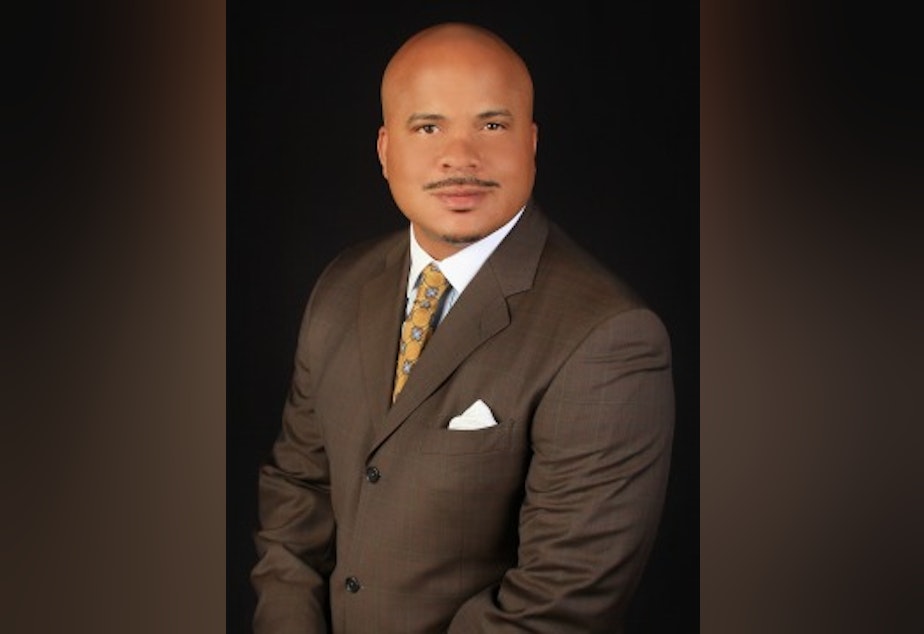Resignation Leaves King County Sheriff Oversight In Doubt

Efforts to implement civilian oversight of the King County Sheriff’s Office have faced a rocky path. Last week the first person ever to head the Office of Law Enforcement Oversight resigned.
Charles Gaither was an investigator with the Los Angeles Police Department before he took the job as King County’s first director of the Office of Law Enforcement Oversight in 2011. His appointment came amidst a series of audits citing lack of accountability and poor internal investigations by the King County Sheriff’s Office.
Now in a parting statement, Gaither said he’s concluded that effective oversight can’t be achieved. During his brief tenure, he said, “support for effective oversight of the Sheriff’s Office waned and the spirit of collaboration was replaced with conflict and political maneuvering.”
King County Council Chair Larry Phillips denied this. “Mr. Gaither’s allegations could not be further from the truth,” he said. “The council established and consistently funded the Office of Law enforcement Oversight and we remain fully committed to its effective oversight of law enforcement.”
Phillips said Gaither is to blame for any lack of progress. “There are very serious issues regarding Mr. Gaither’s management and personnel skills, issues not related to the mission of the office,” Phillips said.
Gaither said he can’t address these allegations right now. He told the Seattle Times that the county’s continued use of controversial neck restraints was “the last straw” for him. But as recently as last month, King County Sheriff John Urquhart said at a press conference he’s had no problems working with Gaither. “We get along very, very, very well,” Urquhart said. “We’re like brothers from a different mother.” But he added, “there’s no hardball like family hardball.”
The King County Auditor said in 2012 that “efforts to implement civilian oversight in King County have been hampered by labor and legal issues,” including grievances filed by the King County Police Officers Guild.
Kymber Waltmunson is the county auditor. She notes that the civilian office is still very new. “These kinds of oversight processes are challenging,” she said. “The role of the auditor’s office is very similar in some ways to the Office of Law Enforcement Oversight. No one is excited to see the auditors coming.”
But Waltmunson’s 2013 audit contained some good news about the sheriff’s department. The agency is improving its abilities to log and track complaints. And Justin Anderson, another auditor in Waltmunson’s office, said Gaither did make progress in his two years on the job. One achievement was creation of a formal mediation program for low-level complaints, so people can come in and talk to a sheriff’s deputy face to face.
Brian Buchner is the president of the National Association for Civilian Oversight of Law Enforcement, as well as an investigator for the Office of Inspector General at the Los Angeles Police Commission. He said hiring civilians increases community confidence in police, something even more communities are seeking after tensions with police exploded last month in Ferguson, Mo.
Buchner said Gaither’s disputes with the King County Police Officers Guild over access to investigatory meetings and documents sound familiar. “That certainly is not unique to King County, and I think that that shows a lack of appreciation of the value that oversight – or an oversight practitioner – can add to the process.”
Buchner said it’s encouraging that the County Council is voicing its support for civilian oversight, but now they should move quickly to fill Gaither’s job. “I think opening the position and moving quickly to fill it will be one of the biggest demonstrations of their support for oversight,” he said. “Because if they leave the position vacant for too long that makes it more difficult for someone to come in and take over that position.”
Buchner said the King County Council will also need to look at whether the mission of the office is out of step with its funding. A 2012 study by policing expert Merrick Bobb found the office to be “understaffed to an astonishing degree.”

